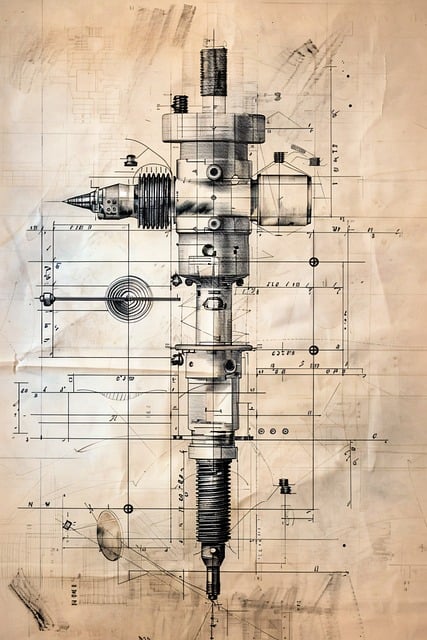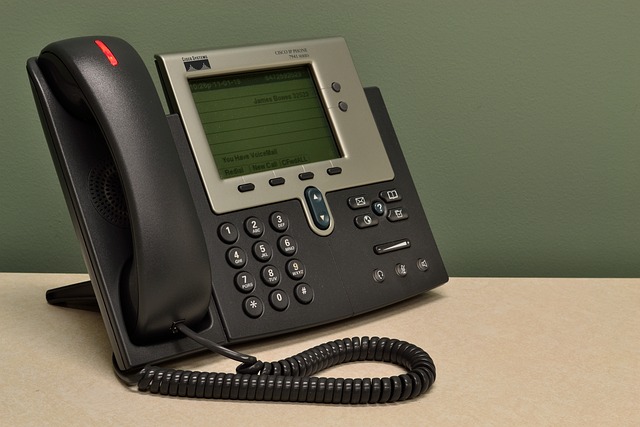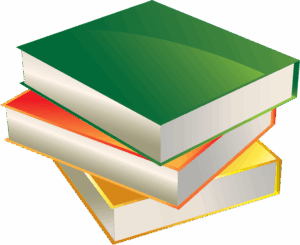Optimizing Communication: Clear UK Tech Guidelines Through Professional Translation Services
In the dynamic UK tech sector, Translation services for UK Technical Guidelines and Standards are indispensable for ensuring clarity, consistency, and compliance across manufacturing, healthcare, and IT industries. These services break down language…….

In the dynamic UK tech sector, Translation services for UK Technical Guidelines and Standards are indispensable for ensuring clarity, consistency, and compliance across manufacturing, healthcare, and IT industries. These services break down language barriers, streamline processes, enhance collaboration, and solidify global influence by enabling accurate adaptation of complex technical jargon into accessible language. By employing linguistically skilled professionals and advanced tools, top-tier providers ensure regulatory adherence, maintain consistency, and preserve the original intent behind guidelines, facilitating international understanding and compliance. Choosing the right service provider involves seeking experts with deep industry knowledge and innovative solutions that automate repetitive tasks, reduce costs, and speed up time-to-market, ultimately enhancing cross-language communication.
Are your UK technical guidelines as clear and concise as they should be? In a world reliant on standardized communication, understanding the significance of clear technical documentation cannot be overstated. This article explores the critical role of translation services in harmonizing UK guidelines and standards, delving into challenges, best practices, case studies, and future trends. Discover how the right language service provider can ensure your technical documents are not just translated but perfectly adapted for global comprehension. Learn about essential legal considerations and tools to streamline workflows, making your UK technical guidelines truly accessible.
- Understanding the Significance of Clear Technical Guidelines in the UK
- The Role of Translation Services in Standardization
- Challenges in Translating Technical Documentation
- Ensuring Precision: Best Practices for Technical Translation
- Case Studies: Successful Translations of UK Guidelines
- Choosing the Right Language Service Provider
- Tools and Technologies for Efficient Translation Workflows
- Legal and Regulatory Considerations in Technical Document Translation
- Future Trends in UK Technical Guidelines Translation
- A Comprehensive Checklist for Quality Assurance
Understanding the Significance of Clear Technical Guidelines in the UK

In the dynamic landscape of the United Kingdom’s technical industries, clear and concise technical guidelines are more than just a best practice; they are indispensable tools for fostering efficiency, safety, and innovation. These guidelines serve as the backbone for various sectors, including manufacturing, healthcare, and information technology, ensuring that standards are met and maintained consistently. For instance, translation services for UK Technical Guidelines and Standards play a pivotal role in making these crucial documents accessible to a diverse range of professionals, promoting uniformity across industries regardless of language barriers.
The significance of clear technical guidelines cannot be overstated, especially considering the UK’s global influence in technology and innovation. They streamline processes, reduce errors, and enhance collaboration by providing a shared understanding among stakeholders. Moreover, they facilitate regulatory compliance, which is vital for avoiding legal pitfalls and maintaining public trust. In essence, well-crafted guidelines are the linchpin that connects industry professionals, ensuring that technical knowledge and best practices are not only understood but universally adopted.
The Role of Translation Services in Standardization

In the realm of UK technical guidelines, clarity and consistency are paramount to ensure understanding and adherence across industries. Here, translation services play a pivotal role in standardization. With the UK’s diverse linguistic landscape, especially when dealing with international standards and technical documents, professional translation becomes indispensable. It bridges the gap between complex technical jargon and everyday language, making directives accessible to all.
Translation services for UK Technical Guidelines and Standards not only simplify communication but also maintain precision. Skilled translators grasp the nuances of various languages, ensuring that technical concepts are accurately conveyed while preserving the integrity of the original information. This is particularly crucial in industries where even a slight misinterpretation could lead to significant errors or safety hazards. Standardized translations foster a common understanding, facilitating collaboration and compliance on a national and international scale.
Challenges in Translating Technical Documentation

Technical documentation, especially in a diverse country like the UK, presents unique challenges when it comes to translation. The primary hurdle lies in ensuring accuracy while conveying complex technical concepts and terminology across languages. Every language has its nuances and idiomatic expressions, making it difficult to translate word-for-word without losing the intended meaning.
For UK technical guidelines and standards, where clarity and precision are paramount, professional translation services become indispensable. These services employ linguists with deep industry knowledge who understand the intricacies of technical writing. They also leverage advanced tools and technologies to deliver seamless translations that meet the stringent requirements of regulatory bodies and industry standards. Translation service providers must stay abreast of updates in source and target languages to maintain consistency and avoid misinterpretations, thereby enhancing the overall effectiveness of communication.
Ensuring Precision: Best Practices for Technical Translation

When it comes to technical guidelines and standards, precision is paramount. For documents intended for the UK market, clear and accurate translation services are essential to ensure comprehension and compliance among readers. The complexity of technical terminology demands a meticulous approach; thus, best practices for technical translation should be embraced to deliver high-quality results.
Translation service providers specializing in UK technical guidelines must employ rigorous quality assurance processes. This includes thorough review and editing to catch even subtle errors. Using industry-specific glossaries ensures consistency across translated documents, enhancing overall precision. Moreover, staying updated with the latest standards and guidelines relevant to the subject matter is vital for translators to accurately convey technical information without ambiguity.
Case Studies: Successful Translations of UK Guidelines

When it comes to ensuring clarity and consistency, case studies demonstrate the successful translation of UK technical guidelines into various languages. These examples highlight how professional translation services can adapt complex regulatory information for global audiences. By employing expert translators familiar with both the source and target languages, these case studies illustrate effective communication of UK standards and guidelines overseas.
Translation services for UK Technical Guidelines and Standards play a vital role in facilitating international understanding. From manufacturing and engineering to healthcare and environmental regulations, accurate translations enable businesses and individuals worldwide to navigate UK requirements seamlessly. Through rigorous quality assurance processes, these translation services guarantee that the essence and intent of the original guidelines are preserved, fostering compliance and cooperation on an international scale.
Choosing the Right Language Service Provider

When it comes to ensuring clarity and consistency in your UK technical guidelines, selecting the appropriate language service provider is a strategic decision. Look for a company with expertise in technical translation, possessing a deep understanding of industry-specific terminology and jargon. Experience in localising content for the UK market is key, as they’ll be able to adapt materials to meet regulatory requirements and cultural nuances.
The best providers offer more than just word-for-word translation. They should employ professional translators who can relay complex ideas accurately while maintaining a concise style, vital for clear guidelines. Additionally, services like proofreading and editing ensure the final document is free from errors and aligns perfectly with your original intent.
Tools and Technologies for Efficient Translation Workflows

In today’s digital era, efficient translation workflows are paramount for businesses and organizations looking to streamline their processes and maintain clarity in communication. The UK technical guidelines and standards demand precision and consistency, which is where specialized tools and technologies come into play. Translation services that cater to these guidelines utilize advanced software solutions designed to automate repetitive tasks, ensuring accuracy and saving significant time. These platforms often include features for terminology management, machine translation with human review, and seamless integration with content management systems.
By leveraging such innovative tools, translation service providers can offer enhanced efficiency without compromising quality. This is particularly beneficial for UK-based companies working on technical documentation, software localization, or any material that requires adherence to specific standards. Efficient workflows not only reduce costs but also enable faster time-to-market, ensuring that guidelines and standards are communicated effectively and consistently across various languages.
Legal and Regulatory Considerations in Technical Document Translation

When it comes to technical document translation, especially for guidelines and standards in the UK, legal and regulatory considerations cannot be overlooked. These documents often contain complex terminology and specific requirements that must be accurately conveyed in the target language. Translation services for UK Technical Guidelines and Standards should not only focus on linguistic precision but also ensure compliance with local laws and regulations.
Professional translators must stay updated with any changes in legislation to provide accurate and up-to-date translations. This includes understanding product safety standards, data protection regulations, and industry-specific guidelines, all of which can vary between countries. Effective translation services should aim to bridge the gap between technical jargon and legal terminology, ensuring that the translated document retains its original meaning and integrity while adhering to local requirements.
Future Trends in UK Technical Guidelines Translation

As technology continues to evolve, so do the complexities of technical guidelines and standards. The demand for precise and up-to-date translation services for UK Technical Guidelines and Standards is on the rise. Future trends suggest a shift towards more dynamic and interactive translations, leveraging advanced machine learning technologies to ensure accuracy and consistency. Artificial Intelligence (AI) powered tools can automate repetitive tasks, making the translation process faster and more efficient.
Furthermore, there’s an increasing focus on contextual understanding and cultural adaptation. Advanced translation platforms will incorporate machine intelligence to grasp the nuances and intent behind technical texts, resulting in more natural and locally relevant translations. This evolution ensures that UK Technical Guidelines remain clear and concise, catering to a global audience while adhering to diverse regulatory requirements.
A Comprehensive Checklist for Quality Assurance

Ensuring clarity and consistency is paramount when it comes to UK technical guidelines, especially as they serve as essential references for industries across the board. A comprehensive checklist for quality assurance becomes indispensable in this context, acting as a guide to verify that all regulatory requirements are met. This checklist should encompass various elements such as accuracy of information, up-to-date status, ease of understanding, and alignment with international standards—especially crucial when considering translation services for UK technical guidelines and standards.
A thorough review process involves fact-checking every detail, cross-referencing against existing regulations, and gauging the effectiveness of communication. It’s essential to involve subject matter experts who can provide valuable insights and ensure the practical applicability of these guidelines. Moreover, a robust checklist should account for linguistic precision during translation services, guaranteeing that the final document maintains its original intent while adhering to cultural nuances in different languages.
In conclusion, clear and concise technical guidelines are vital for the UK’s technological advancement and international trade. By leveraging translation services that specialize in standardization and adhering to best practices, challenges can be overcome to ensure precision. Case studies highlight successful translations, emphasizing the importance of choosing competent language service providers. Future trends show promise through advanced tools and technologies, while legal considerations ensure regulatory compliance. Ultimately, a comprehensive checklist for quality assurance guarantees that UK technical guidelines remain top-notch in a globalized market, enhancing both efficiency and safety. Translation services play a pivotal role in facilitating this process, ensuring that technical guidelines are accessible, accurate, and effective across diverse linguistic landscapes.






